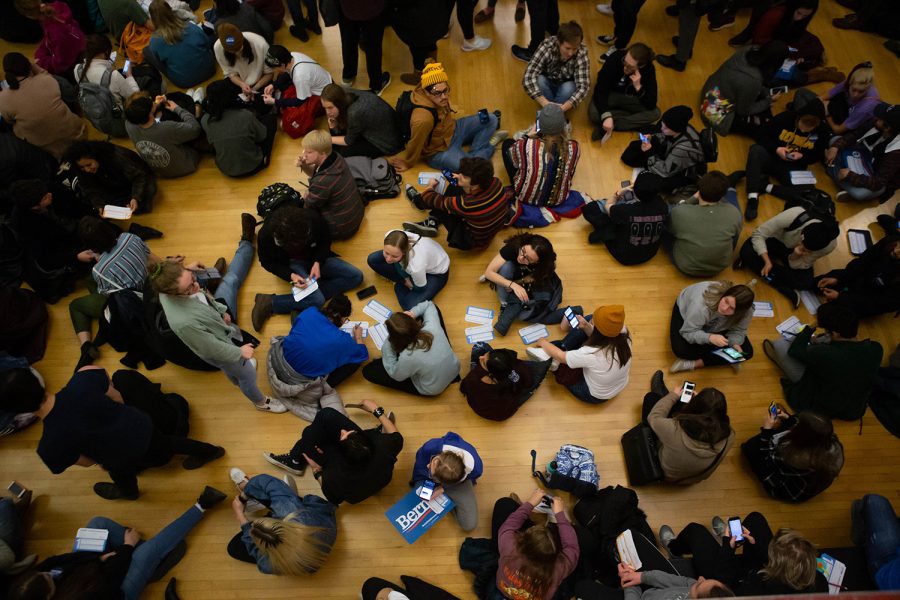Opinion | Stay first in the nation, Iowa
A 2020 mistake should not cost Iowa’s first in the nation caucus.
University of Iowa students caucus at the Iowa Memorial Union on Monday, February 3, 2020.
July 7, 2022
As a lifelong Iowan, I believe the state should remain first in the nation to caucus in presidential primaries.
But, this belief goes beyond my affinity for the state. Iowa is a great representation of the country as a whole, as it includes both small towns and larger metropolitan areas. The state also leads the country in agricultural production, which is a major force in the nation’s economy.
Though many pundits argue Iowa should not be first in the nation because the state is small and less diverse, Iowa should remain first to cast caucuses during the primary season because we best represent the nation.
In the 2020 presidential elections, Iowa Democrats first launched a smartphone app to receive the votes. Unfortunately, it did not go well. Results took weeks to come in, as the rest of the nation took to their primaries.
This led to a slew of memes, as well as national news stations, noting Iowa’s mistakes in the caucus. This reignited a conversation on whether Iowa should keep its first status.
Iowa has held the first in the nation caucus since 1972. Being a litmus test for candidates, the Iowa caucus gives politicians a strong reason to visit states that are not high in electoral votes or population, giving a voice to those states, including Iowa.
Even though Iowa is not populous or has high electoral votes, it is still impactful on the country. The State of Iowa is a frontrunner in the agricultural industry, supplying the nation’s food.
Agriculture is just one way to capture Iowans and their personable characteristics that not all other states possess. In addition, Iowa is neither a rich nor a poor state, and Iowans hold jobs in multiple industries, not predominantly in one.
Voting statistics show Iowa had a slight Republican lean in the past few years. But Iowa has a history of being a swing state, meaning the state could go to either Democrats or Republicans.
Other states that are being presented to take Iowa’s place — New Hampshire, Nevada, and South Carolina — just aren’t as cut out for the job as Iowa is. Between Nevada’s water shortages, South Carolina’s hurricanes, and New Hampshire’s wealth, none of these states are comparable to Iowa.
One major challenge Iowa has is diversity, with non-white people being only 14 percent of the population.
Although Iowa has places that deal with less diversity in mainly smaller towns, it also holds places like Iowa City, Cedar Rapids, Waterloo, Davenport, and Des Moines, which are bigger towns, with more diversity.
This means Iowa can show other states the multiple different problems that arise in both smaller towns and big cities, and how to help fix them. This can also bring attention to concerns over policies being brought up by less diverse towns, and how to best face those policies.
No other state compares to Iowa, not only as a resident, but also as the lead state of the caucus, with Iowa leading in agriculture, and its predictions.
Even though Iowa has been mocked this past presidential election for using an app to collect votes in the caucus, Iowa still shows signs that it should keep its first-in-the-nation spot because it is a leader in agriculture and is a swing state.
It is simple. Iowa should not leave its first in the nation caucus status behind because of one slip up.
Columns reflect the opinions of the authors and are not necessarily those of the Editorial Board, The Daily Iowan, or other organizations in which the author may be involved.



